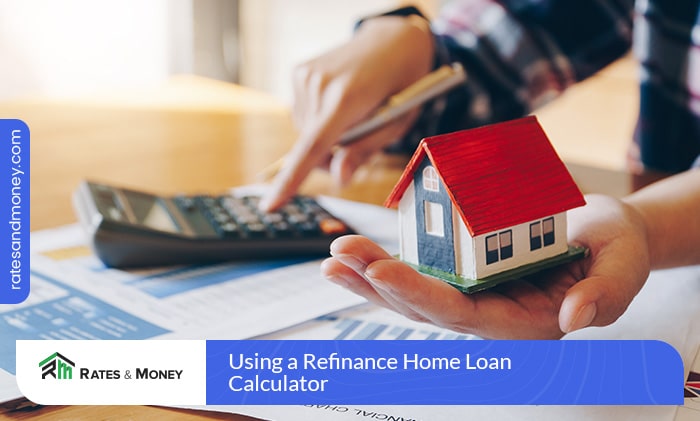Understanding the Difference Between Conforming and Non-Conforming Loans

Table of Contents
Do you know the difference between a conforming and a non-conforming loan?
For first-time homebuyers and borrowers, it’s critical to understand the difference between conforming vs. non-conforming loans. Here’s everything you need to know about the two loan types, and which makes the most sense for you.
Are you in the market to buy a house soon? If so you may be confused by terms that keep popping up, like conforming and non-conforming. We can clear up those distinctions for you.
What Is a Conforming Loan (Fannie Mae and Freddie Mac)?
A conforming loan follows (or conforms to) Fannie Mae and Freddie Mac guidelines, which are overseen by the Federal Housing Finance Agency (FHFA). Conforming loans are designed for average homebuyers who meet a certain set of criteria. You’ll need a good credit score, a reasonable debt to income ratio (DTI), and a minimum down payment. Conforming loans have a maximum loan limit of $548,250 in most areas, but the loan limit can change (and does so usually on an annual basis) plus you can get higher loan limits in areas with a high cost of living (currently up to a maximum of $822,375 in specific counties). The conforming loan limits also vary depending on property type. For example, a 2 unit property has a higher loan limit than a standard Single Family Residence. Conforming loans allow for 1-4 unit residential properties.
What is a Non-Conforming Loan?
A non-conforming loan doesn’t have to abide by Fannie Mae or Freddie Mac guidelines. These non conforming loans may be over the conforming loan limits set by Fannie Mae and Freddie Mac (jumbo loans), or they may be backed by a government agency like the USDA, FHA, or Veterans Administration (VA.) The requirements vary by the mortgage type and lender, but you can often get by with a smaller down payment and lower credit score.
Jumbo loans and VA loans
Two of the biggest non-conforming loan types are jumbo loans and VA loans.
VA loans require you to be an active duty military member, retired or disabled veteran, or surviving spouse of a service member. VA loans don’t have loan limits (although lenders may impose their own limits). Depending on your credit, you may be able to qualify for a VA loan with a low or no down payment.
Jumbo loans generally have stricter qualification requirements than conventional loans, as they exceed conforming loan limits and can’t be sold to the government agencies. Depending on your situation likely will need a larger payment and higher credit score when compared to conforming loans.
Many of the jumbo loan programs with the best rates require down payments of at least 20% and credit scores over 760. With that said, Jumbo loan requirements are not universal like government backed mortgages. Every lender or bank will have different requirements and rates. When shopping for a Jumbo mortgage don’t be surprised to see much more variance between lenders in the rates and the underwriting guidelines compared to a conforming loan. Some lenders don’t handle jumbo loans at all, so make sure to do your research before you start the loan process.
What Are the Benefits and Drawbacks for Conforming Loans?
The biggest benefit of Fannie Mae and Freddie Mac conforming loans is that they usually come with better interest rates. A conforming loan can be a much more cost effective option, reducing the interest you pay over the life of the loan significantly. It can also make your monthly mortgage payment lower, especially if you choose a 25- or 30-year loan term. It’s also a lot simpler to qualify and get approved for conforming loans vs nonconforming loans. The process is highly standardized, especially if you have a high credit score, and with Fannie Mae or Freddie Mac loans, you have specific federal protections.
Most people are better served by conforming compared to nonconforming loans. However, there are some major drawbacks to conforming loans you’ll want to know about. A conforming loan may not provide you with enough if you are considering a home with a higher sale price. In this instance, you would require more money than the loan type can offer. A nonconforming loan can help you obtain what are commonly referred to as “jumbo loans”.
However, at the moment, the median home price in the U.S. is $340,000. This falls well below the approved Fannie and Freddie $548,250 conforming loan limit for most of the country. This type of loan could be a fast, easy path to your dream home.
If you’re considering homes in high cost-of-living areas, then you may need a non-conforming loan, even in places where the conforming loan limit is higher. The median home price could exceed even the upper limit allowed for conforming loans in a nice neighborhood with great schools and a short commute.
A government-backed loan (which are often non-conforming) can make homeownership more affordable. These loans include VA, USDA, and FHA loans, which may not require a perfect credit score. Government-backed loans may have loan limits that are lower than those for conforming loans. You can use the website of the Department of Housing and Urban Development to look up specific loan limits in your chosen location.
What Are the Main Distinctions for Non-Conforming Loans?
An obvious non-conforming loan benefit is that it lets you afford a more expensive home. The flexibility of nonconforming loans can also be useful for homebuyers who are looking at one of the government-backed loan programs, such as a VA, USDA, or FHA loan.
Non-conforming loans can help almost anyone secure financing as long as you meet the necessary lender and program requirements. However, there is more risk associated with a nonconforming loan from a lender standpoint. Jumbo loans, for example, don’t come with any government-backed guarantees but give you access to much higher loan limits for luxury home purchases. An exception would be VA loans, which don’t have loan limits.
Key Differences Between Conforming and Non-Conforming Loans
Basically, comparing conforming vs non-conforming loans comes down to what type of borrower you are and what kind of home you want to purchase. A conforming loan will meet all of the necessary guidelines for either Fannie Mae or Freddie Mac. You’ll need a decent credit score and down payment and you’ll have to find a home under the loan limit. Non-conforming loans and jumbo loans fall outside Fannie and Freddie guidelines, but can give you access to government backed lending with even less than great credit and a low down payment.
Ready to Apply For a Home Loan?
Are you curious about mortgage rates, or are you ready to apply for one to buy a home? There are plenty of great mortgage programs available to help you buy the home you’ve always dreamed of. Getting preapproved for a home loan is a great first step.
Rates & Money is your go-to destination for free information about mortgages. Our home buyer guides and home loan articles are designed to help you make informed decisions when buying a home. View loan limits in your area.
Subscribe to our newsletter
Receive the latest news, tips, and free tools from Rates & Money.





